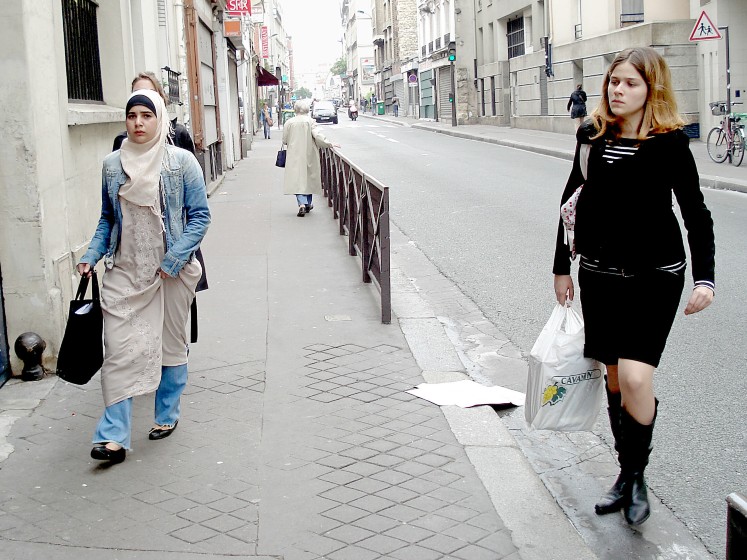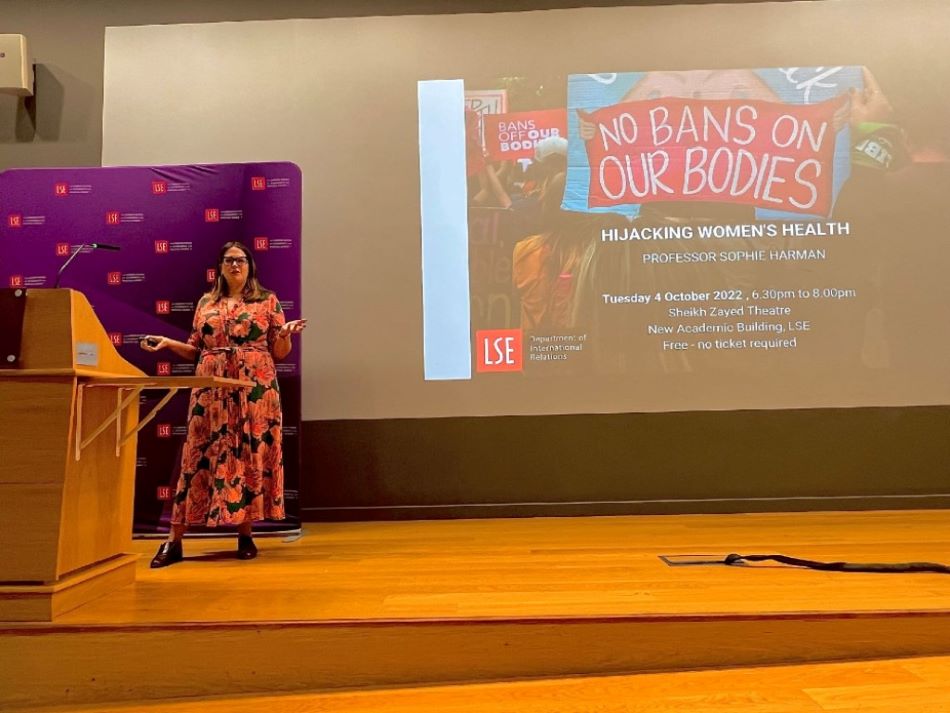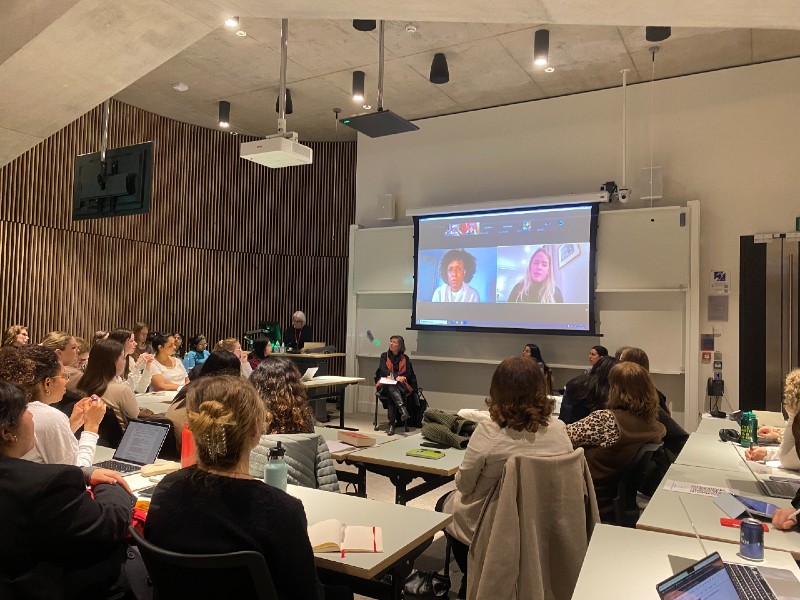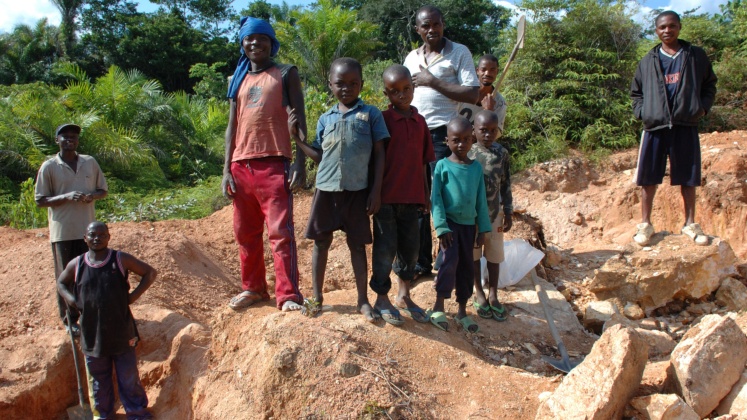In this opinion post, we hear from Zeynep Egin, an MSc International Relations student at LSE, who was a delegate at the United Nations’ 68th annual Commission on the Status of Women (CSW68). Here she reports back on suggestions aimed at achieving gender equality and empowering women and girls.
 Scenes from the SG Town Hall discussion with Civil Society held in the Trusteeship Council chamber at United Nations Headquarters on 13 March 2024. Photo: UN Women/Ryan Brown
Scenes from the SG Town Hall discussion with Civil Society held in the Trusteeship Council chamber at United Nations Headquarters on 13 March 2024. Photo: UN Women/Ryan Brown
The 68th annual Commission on the Status of Women (CSW68) is the United Nations’ largest annual gathering that focuses on gender equality and women’s empowerment, which took place from 11 to 22 March 2024. It witnessed the participation of delegates from many countries who shared their experiences and opinions on how to achieve gender equality and empower women across all sectors of society. The priority theme of the CSW68 was “Accelerating the achievement of gender equality and the empowerment of all women and girls by addressing poverty and strengthening institutions and financing with a gender perspective”.
The issue of gender equality is recognised to be at a critical point. Currently, 10.3% of women globally are living in extreme poverty.
At the CSW68 conference, representatives from governments, civil society organisations, experts, and activists collaborated to agree on actions and investments to eliminate women’s poverty and promote gender equality. The issue of gender equality is recognised to be at a critical point. Currently, 10.3% of women globally are living in extreme poverty. If we are to achieve the Sustainable Development Goals by 2030, progress towards ending poverty needs to be faster. To speed up progress, investment is required, which means that an additional $360 billion per year is needed to achieve gender equality and empower women, including ending poverty and hunger. If a solution to these problems is not found, more than 340 million women and girls will still be living in extreme poverty by 2030.
What can be done?
As a delegate, I had the opportunity to learn about the crucial role of economic empowerment for women and girls in achieving all human rights. It became apparent to me that creating pathways towards ending poverty, supporting sustainable development, and fostering a world where everyone has equal opportunities, regardless of gender, is essential for building a better future for all. Investing in women is an investment in a prosperous future that benefits everyone. The benefits of empowering women extend beyond just their individual lives – it has a ripple effect on their families, communities, and ultimately, society. By investing in women, we can create a more equitable and just world that benefits us all.
Investing in women is an investment in a prosperous future that benefits everyone. The benefits of empowering women extend beyond just their individual lives – it has a ripple effect on their families, communities, and ultimately, society.
Focusing particularly on the theme of CSW68, I would like to touch upon some suggestions aimed at achieving gender equality and empowering women and girls. This is a crucial goal that requires the implementation of various policies and laws. One significant step is to integrate gender perspective into financing. This involves creating policies that promote gender equality, facilitate women’s participation in the economy, combat gender-based violence and discrimination, adopt gender-responsive budgeting, and encourage private sector involvement in gender equality efforts.
Another step is to increase women’s representation in economic institutions by incorporating gender analysis in budget processes and supporting women entrepreneurs. These measures will ensure that women have equal opportunities to access resources and participate in economic development. Engaging women’s organisations is also crucial in promoting gender equality. We should ensure adequate resources for local women’s rights groups, thus facilitating the participation of women’s collectives in decision-making. By empowering women, we can create a more equitable society where everyone has equal opportunities to succeed.
The theme of addressing poverty and strengthening institutions and financing with a gender perspective resonates deeply as we confront the multifaceted challenges facing women and girls, especially those living in poverty.
Conclusion
The CSW68 underscores and highlights the critical importance of accelerating efforts to achieve gender equality and empower women and girls. The theme of addressing poverty and strengthening institutions and financing with a gender perspective resonates deeply as we confront the multifaceted challenges facing women and girls, especially those living in poverty. The insights shared by delegates, experts, and activists highlight the interconnectedness of gender equality, economic empowerment, and sustainable development.
As emphasised by the Norwegian Minister and echoed by many, prioritising gender in governance is not only a moral imperative but also a sound economic strategy that benefits communities and drives inclusive growth. Moving forward, we must translate discussions into action. As we work towards achieving the Sustainable Development Goals, we hope that governments remain committed to their promise to not leave anyone behind.
As we work towards achieving the Sustainable Development Goals, we hope that governments remain committed to their promise to not leave anyone behind.
Banner photo UN Women/Ryan Brown from UN Women Flickr CC by-NC-ND 2.0 DEED
Feature graphic ©UN Women
This article represents the views of the author, and not the position of the Department of International Relations, nor of the London School of Economics.





